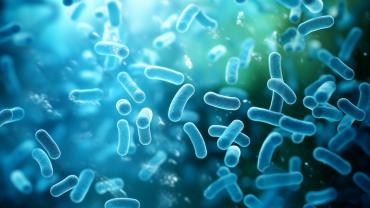
The oral microbiome comprises over 700 bacterial species, forming a complex ecosystem. Like promoting an optimal gut microbiome, maintaining a balanced oral microbiome can support healthy inflammatory responses and immune function. Certain probiotics, like Lactobacillus paracasei (L. paracasei), have shown promise in clinical studies for promoting oral health and potentially reducing the proliferation of pathogenic bacterial strains linked to dental concerns.
It is understood that mutans streptococci (MS), particularly Streptococcus mutans (S. mutans) found in saliva or plaque, is associated with an increased risk of dental caries. S. mutans is often referred to as a “cariogenic bacteria” as a result. In a randomized placebo-controlled trial involving 124 children aged 1.5 to 5, participants received either probiotic milk (containing L. paracasei) or standard milk (the control) once a day for three months. At the end of the study, the children who received the probiotic drink had significantly lower MS levels at 3 and 4 months (p < 0.001 and p = 0.040, respectively) and a significantly reduced risk of dental caries compared to the control group (p = 0.016).
Recent studies highlight the potential role of L. paracasei in supporting healthy inflammatory responses and immune balance in oral health. For example, Kumar and colleagues highlighted that individuals who received applications of L. paracasei had significantly reduced gingival inflammation. Pahumunto and colleagues concluded that L. paracasei can stimulate human neutrophil peptides (HNP) 1-3, the first line of host defense against microorganisms in the saliva. Clinical trials also demonstrate that L. paracasei intake significantly increases salivary immunoglobulin A (IgA), supporting proper immune responses against potential pathogens.
While most studies discuss L. paracasei in milk or milk powder, it has been suggested that other delivery methods, such as toothpaste, may help for broader application, especially as a vehicle to transport probiotics for children. A small pilot study involving five healthy participants (aged 10 to 12) showed that those who used L. paracasei toothpaste displayed reduced MS growth up to 45 to 90 minutes after brushing. Interestingly, this benefit was short-lived with concurrent high sucrose exposure, underscoring the need for comprehensive oral and dietary practices for optimal oral health.
In another clinical study, 60 pediatric patients were divided to receive either fluoride toothpaste, xylitol toothpaste, or xylitol-probiotic toothpaste (containing L. paracasei). They were instructed to use their assigned toothpaste two times a day for six weeks. The xylitol-probiotic group exhibited significantly reduced levels of cariogenic bacteria, such as Streptococcus mutans and Lactobacillus.
Understanding the oral microbiome's role in oral health and the downstream effects on systemic health is an exciting area of research. Daily intake of probiotics, either through diet, supplementation, or toothpaste, may benefit the oral microflora and overall oral health.
Read More: The Truth About Mouthwashes and Heart Health
By Danielle Moyer Male, MS, CNS, LDN